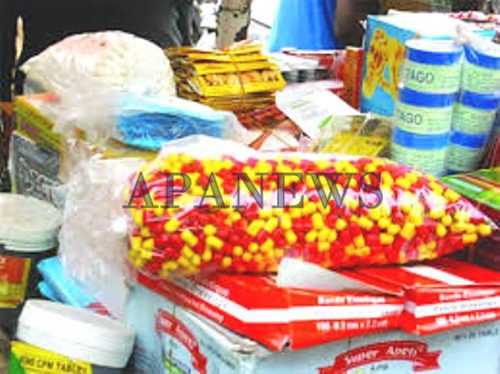The new government in Mauritania has made the regulation of the sale of medicines its main priority.
By Mohamed Moctar
In Nouakchott, the usual setting around medical centres is unrecognizable: occupied only a few days ago by the city’s biggest pharmacies, swarming with patients, the areas around hospitals and dispensaries are now deserted.
The pharmacies that swarmed the area a short while ago are closed, with a large red cross on their doors, a sign that they have been forced to do so by the authorities.
These are the measures taken by the new Minister of Health, Mohamed Nedhirou Hamed, who forbids pharmacies to be within 200 metres of health centres.
These measures are part of a more comprehensive reform announced by the minister in the wake of the new president assumption of office last August.
The reform is multi-faceted, but for Mr. Hamed, addressing the drug puzzle is the most urgent.
In Mauritania, the poor quality of medicines on sale in the country’s pharmacies is a notorious fact of life.
It is almost universal: these drugs do not cure the diseases for which they are prescribed and their effect, if any, appears only after a long period of consumption, often leading to negative side effects.
More than that, Mauritanian patients who seek treatment abroad, especially in Senegal and Tunisia, are diagnosed with the same illnesses and prescribed the same drugs as in their home country.
However, abroad, they heal after taking the same drugs that they had tried in Mauritania but to no avail.
The conclusion is indisputable: the pharmaceutical products sold in the country’s pharmacies are fake.
However, the new minister does not intend to rush to deal with the problem of medicines.
After his appointment, his department has carried out inspections of pharmacies to ensure their compliance with the regulations in force, including the existence of an authorization process to open and a trained pharmacist, in addition to refrigerators for the conservation of products.
As a result of the inspections, many pharmacies voluntarily declared quantities of expired products that were destroyed by the department.
But for Hamed, these are relatively simple measures to implement, unlike the key problem of fake medicines.
“Once we have a laboratory that can verify the composition of drugs, we will seriously address this issue,” he said in a television broadcast a few days ago.
The minister even made it clear that penalties for sellers of falsified pharmaceuticals will not be limited to the closure of pharmacies but can go as far as prosecution.
He explained, in this sense, that selling fake medicines is tantamount to distributing poisons that can cause death or infirmity.
The firmness displayed by Mr. Hamed and the measures already taken against pharmacies have been widely welcomed by Mauritanians, especially through social media.
“We are behind him so that he can press ahead with his reform and does not give in to pressure from the powerful drug importers’ lobbies,” Djibril Mohamed Lemine told APA while going to a drug store.
“As long as this does not lead to the rarefaction and high cost of products,” added a client who was looking for a drug that could not be found.
“In any case, this is the first serious step we are seeing to organize this sector,” commented the pharmacist on duty, visibly delighted to have been spared closure.
Other customers have criticised the relocation of pharmacies away from hospitals and the closure of some of them.
“We are now forced to walk long distances to find a pharmacy and when we do, it is often out of stock of the product we are looking for,” complained Sidi Ethmane, an octogenarian leaning on a crutch.
Between the two points of view, the general practitioner Mohamed Vall considered that the initiative of the Minister of Health is commendable, even if he believes that he must go slowly to achieve his goal in a country where pressures will become increasingly strong and can come from all sides, including the state itself.
MOO/te/lb/as/APA


